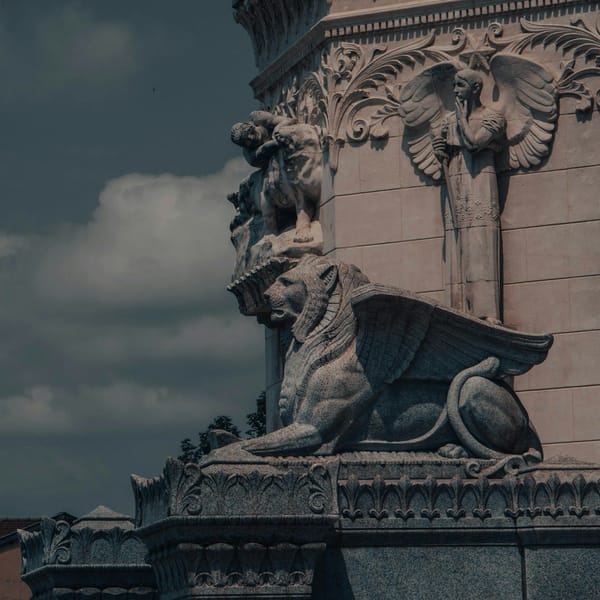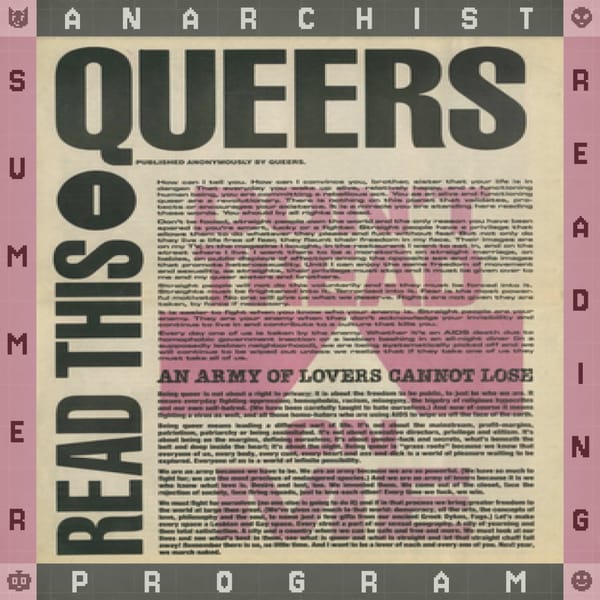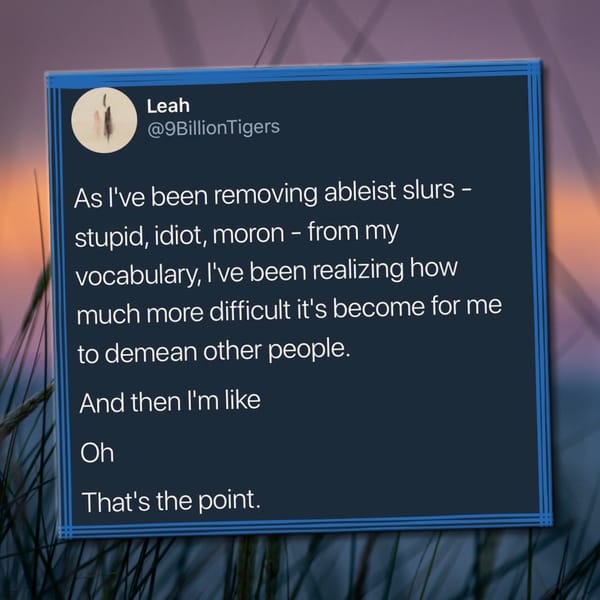Have you ever felt that subtle (or not-so-subtle) pressure to dim your spiritual light? To tone down your joy, to qualify your faith, to make your speech more palatable to a secular world? It's a common experience for christian anarchists, being at odds with both the dominant culture and traditional religious dogma. And the pressure is even more intense when we organize with people of other, or no, faiths.
Today, I want to explore a curious parallel: the unenlightened critiques of anti-theists, and the misinformation of anti-vaxxers. Both rely on flawed logic, outsider perspectives, and ultimately cause harm. Both contribute to an environment where self expression is silenced, replaced by a shallow adherence to in-group dogma. They both invite us to sit in anger, without offering a pathway toward real change.
The Measles Party of Contempt
I love the liturgical seasons. Advent, Christmas, Epiphany, Lent, Easter, Pentecost – these aren't dusty old traditions to me. They're powerful symbolic frameworks for understanding the human journey, for connecting with the divine, and for enacting real change in the world Right now, my community is engaged in a series of contemplations called "Unlearning Empire," using the liturgical cycle - currently, the Lenten season - as a guide.
We're not just "giving something up" for 40 days. We're reframing the wilderness, the journey to the cross, as metaphors for the difficult but necessary work of dismantling oppressive systems – capitalism, hierarchy, and all the ways we participate in them. We acknowledge the difficult walk away from the comforts of capitalism, that societal transformation means facing burdens of inconvenience, of confrontation, of persecution.
This is where the anti-theists (and sometimes even well-meaning secular allies) often stumble. They hear "Lent" and immediately think of Catholicism, of rigid rules, of a literal belief in a historical Jesus that they find illogical or even harmful. They might say, "That's too much Jesus for me," or dismiss the entire framework as irrelevant to a modern, secular world.
This, my friends, is like throwing a measles party for religious trauma instead of getting vaccinated with curiosity which leads to understanding. It's choosing to wallow in anger and resentment without engaging in the transformative work that can lead to true healing. It's like someone who has never experienced the power of prayer telling a seasoned practitioner that it "doesn't work." It's an outsider perspective, based on a fundamental misunderstanding of the symbolic language of faith.
Injecting Bleach to Own The Libs
Liberation theology, unlike some evangelical interpretations, doesn't view the Bible as a literal, inerrant word-for-word account. We see it as a sacred text, a collection of stories, poems, and teachings that invite us into contemplative engagement. We look for deeper truths, revealed through intuition, through connection with our divine inner core – that spark of the sacred that resides within each of us.
When we approach the liturgical seasons in this way, we're not bound by dogma. We're free to explore the archetypes – the universal patterns of human experience – that they represent. The wilderness becomes a symbol of any challenging journey, any period of testing and transformation. The cross becomes a symbol of sacrifice, of standing up for what's right even in the face of adversity.
Ironically, with their emphasis on rational thinking and empiricism, anti-theists make the same mistake that evangelicals do. By insisting that the text can only ever mean what it literally says in English, with no appreciation for the original languages, symbolic nuance, or cultural context, their anti-spiritualism mirrors the anti-intellectual tirades of those who cherry pick studies about horse paste.
They aren't revealing anything insightful by pointing out that sacred texts - much like scientific studies - sometimes contradict each other. They're just pointing at things they don't like and yelling. I can sympathize with the fact that living through things like a pandemic and christian nationalism are indeed traumatic. That doesn't justify regressing into a wild eyed panic of antagonism and denial.
The Overton Windows of Faith and Empire
This silencing of liberationist voices is part of a larger problem, a dangerous positioning in what's considered acceptable discourse – what's known as the Overton Window. The Overton Window limits what is possible by framing what's popular and "normal" as acceptable discourse, while pushing ideas that are considered extreme or unthinkable outside the window.
As long as the idea of a heaven on earth which holds the equal dignity of all sacred is considered extreme, it's outside the window of possibility. And faith that it will one day be made manifest through God's power alone is nothing without works.
The challenge for any love-based faith framework isn't just that the social justice implications are unthinkable. It's also the spiritual dimension of cultivating the profound personal and social transformations required to get there - regardless of one's conceptual framework.
So really we have two Overton Windows at play here:
- The Faith Window: Christian nationalism has yanked this window far to the right, equating Christianity - and by extension, any practice of faith - with a narrow, often oppressive set of beliefs. This makes it difficult for people of faith, especially christian anarchists, to speak authentically without being lumped in with that harmful ideology.
- The Empire Window: Throughout society, there's a preference for hierarchies of domination, for maintaining the status quo. Even liberal democracy, which theoretically grounds power in systems rooted in and accountable to the power of the people, shows up as a vehicle for domination. This makes it challenging to advocate for radical change, for the kind of systemic transformation that liberation theology calls for.
The "Unlearning Empire" series is an attempt to push back against both of these narrowed windows. It's a way of reclaiming the sacred, of saying, "We will not be silenced. We will engage with our traditions in a way that is meaningful and transformative, and we will do so with joy and conviction."
We need to use our voices to clearly and boldly articulate how liberation theology and christian anarchism fit into this vision. The Overton Window around what's possible is stuck as long as we fear the discomfort of our listener when we stand in our power.
Divine Strength: Standing in Our Own Power
I want to be clear about something. Upholding the power of spirituality is not about imposing beliefs, or having authority over anyone else. It's about divine strength. It's about standing in our own power, recognizing that our very existence is proof that the Creator wants us here, fully embodying the space we were created to fill.
We have the opportunity to find our divine connection, and this is a profound gift. And when we understand this power in the context of principles like autonomy, equality, community, and consensus, a vision for heaven on earth stops looking so extreme and starts to emerge as framework for a future free of every form of domination over the human mind.
A future where our power flows from within us into the solutions we craft together, never taking on the monstrous form of empire, but remaining rooted in our deep commitment to one another's equal place in the cosmos and our mutual well being becomes possible when we stand in our power to shift the discourse around the beauty of new creation to make empire look extreme.
Toward Interfaith Solidarity
This doesn't mean we can't engage in meaningful interfaith dialogue. My own spiritual journey has been deeply enriched by learning from other traditions. I've drawn inspiration from 12-step recovery, from occult practices like tarot and astrology, from Buddhist concepts like interdependence. And I've done so while remaining rooted in my core spiritual identity - my understanding of Jesus as a revolutionary figure who challenged the powers of empire.
Letting these frameworks inspire and strengthen me didn't take away from my spirituality. It expanded and magnified it.
True interfaith dialogue doesn't require us to dilute our faith or to silence our unique perspectives. It invites us to listen deeply, to respect the integrity of each tradition, and to find common ground where we can. It invites each of us to fully lean in to our divine callings.
There is never "too much" of someone else's wisdom for us to learn from. There is always room for more Buddha. More Jesus. More secular humanism. More of whatever path calls to you.
A Call to Unsilencing
So, to my comradelphois of every walk, especially christian anarchists: Don't be afraid to shine. Don't let the misunderstandings of others dim your light. Embrace the richness of your tradition, the power of your faith, and the transformative potential of engaging with the sacred in a way that is both ancient and radically new.
And to those who may be skeptical, who may be tempted to dismiss this as "too much Jesus" or irrelevant to a secular world: I invite you to look deeper. To consider the possibility that there is wisdom to be found in the symbolic language of faith, in the practices that have sustained generations of believers. To recognize that the pursuit of liberation is not just a political project, but a spiritual one as well.
Let's move beyond the measles party of anger and resentment. Let's embrace the transformative power of authentic faith, and together, let's work to create a world where all can thrive.






